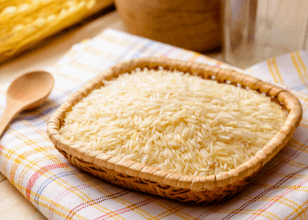Agrawau: Exploring the Cultural and Historical Significance of a Unique Term
Introduction to Agrawau
Agrawau is a word that may appear unfamiliar at first glance, but like many culturally significant terms, it holds layers of meaning that can unfold when explored deeply. The term, though not widely recognized in mainstream discourse, carries within it a rich history that connects to various traditions, communities, and experiences. In this article, we will take a closer look at the origins, cultural significance, and modern-day relevance of Agrawau, as well as explore its potential interpretations in both historical and social contexts.
Agrawau is not simply a word but an expression of identity, belonging, and history that resonates deeply within certain communities. Understanding this term requires us to dive into both etymology and the stories of the people who use it. By the end of this article, you will not only become familiar with the term but also appreciate the intricate connections it holds to various facets of life.
Whether you’re a linguist, historian, or someone curious about the term, this article will serve as your guide in understanding its broader meaning. We’ll explore everything from its historical roots, how it plays a role in modern culture, and why terms like these, which are relatively obscure, still matter in today’s society.
The Etymology of Agrawau: Tracing its Origins

To truly grasp the significance of any term, understanding its etymology is a good starting point. The word “Agrawau” has deep roots, possibly deriving from ancient dialects or linguistic traditions that have been passed down over generations. Though the specific origin is somewhat shrouded in mystery, researchers and language experts have speculated that it may have connections to various South Asian languages, especially those found in the Indian subcontinent.
Agrawau appears to have evolved over centuries, with traces of its use found in older texts, possibly linked to certain cultural or regional practices. It’s likely that Agrawau served as a descriptor of either a place, profession, or social status in historical contexts. Over time, the term may have been localized to certain communities, gaining its unique significance among those who retained its original meaning.
Language, as we know, is fluid and dynamic, and is no exception. As it spread across regions, variations of its pronunciation and spelling may have developed, leading to different interpretations. These variations can still be seen today in different parts of the world where the term holds relevance. Exploring its etymology also gives us insight into how language can bridge cultural gaps while simultaneously evolving to fit specific societal needs.
Additionally, the term Agrawau may have experienced a transformation during colonial periods, which often saw native languages and terms adapting to new influences. This historical reshaping has left an indelible mark on how the term is understood and used in contemporary times. Understanding this background provides the foundation for understanding the deeper layers of Agrawau.
Agrawau and Its Historical Significance
The historical importance of Agrawau becomes evident when one examines the cultural practices and societal structures of ancient communities. Historically, words like often carried weight within specific contexts, signifying not just a label but a position within a larger social fabric. In certain communities, Agrawau might have been used to describe individuals or groups who held specific roles or statuses, much like how surnames or titles function in other cultures.
In ancient South Asian societies, where hierarchical structures were common, Agrawau may have denoted membership to a particular caste, guild, or lineage. Some experts believe that it was closely linked to trade, as certain surnames and titles in India and neighboring regions often reflect professional identities. Thus, individuals associated with Agrawau might have been part of merchant communities or involved in specific types of economic activities that were crucial for societal functioning.
Interestingly, the historical use of the term was likely intertwined with regional governance and local economy. Communities or families identified by could have enjoyed certain privileges, responsibilities, or social standing. This was not uncommon in ancient civilizations, where names and titles played a role in determining one’s place in society.
During the medieval period, Agrawau may have also held importance in shaping regional identities. As kingdoms and empires rose and fell, local communities often clung to their traditional titles and terms to preserve their cultural heritage. In this context, Agrawau may have served as more than just a name—it could have been a marker of cultural pride, a means of asserting identity amid political changes.
The Role of Agrawau in Caste and Social Structures
In many cultures, surnames and titles are deeply connected to caste and social hierarchy, and Agrawau may have functioned in a similar way. South Asian societies, in particular, are known for their intricate caste systems, where names often signal social class, occupation, and community ties. The term might have been closely linked to such a system, providing insight into the role that those bearing the title played within their societal context.
Individuals associated with Agrawau may have belonged to a specific caste or professional group, such as traders, artisans, or even warriors. In ancient India, for example, the caste system was rigid and hierarchical, with each caste responsible for particular duties. The association of Agrawau with a particular community could point to the type of work they engaged in, whether it was trade, administration, or another key societal function.
Over time, the term might have evolved, with families retaining it as a symbol of their lineage. This form of hereditary identification was common, where social standing and occupation were passed down through generations. In certain regions, particularly those that valued tradition and hierarchy, would have carried significant social capital.
However, as societies modernized and became more mobile, the rigid structures of caste and class have loosened, allowing terms like Agrawau to take on more symbolic than practical meaning. Today, while its caste-based origins may not hold as much sway, the cultural reverberations of Agrawau still resonate within communities that trace their heritage to it. These historical ties are often cherished and preserved through oral traditions, community events, and written records.
Agrawau in Modern Culture: The Transition to Contemporary Times
As we move into the modern era, the role of has shifted from its traditional meanings and origins, adapting to new social realities. While its historical roots may lie in caste, community, or trade affiliations, in contemporary times, it has taken on different connotations. The once rigid definitions have relaxed, allowing individuals to reinterpret its significance in ways that reflect modern values of identity, pride, and community.
One of the ways Agrawau manifests in modern culture is through its use as a surname or family identifier. Like many historical names, the significance of may now rest more in heritage and pride than in caste obligations or occupational status. Families bearing the name may honor their ancestors’ contributions, their cultural traditions, and the historical significance of the term by keeping it alive in family names, gatherings, and regional identities.
In today’s globalized world, where communities are spread across continents, names like Agrawau serve as a bridge to one’s roots. Individuals with ties to the term may use it as a way to connect with their ancestors’ experiences, reclaim cultural pride, or maintain a sense of belonging within a diaspora. The fluidity of its meaning today allows for broader interpretations, making it adaptable to personal, familial, or even political identities.
Furthermore, in an age of increasing digital representation, names like are often carried into online spaces where cultural heritage is shared, discussed, and celebrated. Social media, blogs, and community websites dedicated to preserving and promoting the legacies of certain communities ensure that terms like Agrawau remain part of the conversation, fostering a sense of unity and continuity across generations.
Agrawau and the Global Diaspora
As people from South Asia and surrounding regions have migrated around the globe, the significance of cultural identifiers like Agrawau has taken on a new dimension. The global diaspora of South Asian communities has led to an intricate web of connections between homelands and adopted countries, with terms like Agrawau playing a role in maintaining these ties.
For individuals in the diaspora, the term Agrawau might represent more than just a familial connection—it serves as a reminder of their cultural heritage and history. Maintaining such cultural identifiers can be especially important in the context of immigration, where individuals seek to retain a sense of identity amid new environments and cultures. In this way, becomes a symbol of resilience and continuity, even as people move and adapt to new countries.
Diasporic communities often organize cultural events, festivals, and gatherings to preserve their heritage, and terms like Agrawau feature prominently in these activities. Whether it’s through naming conventions, storytelling, or historical recounting, Agrawau retains its place as a vital cultural signifier. For younger generations born in diaspora, learning about terms like Agrawau allows them to feel connected to their roots, even if they have never visited the places their ancestors called home.
Moreover, the global nature of today’s world means that terms like are no longer confined to one geographic region or community. The internet has allowed individuals from all walks of life to learn about and engage with these terms, bringing awareness to their historical and cultural significance. This cross-cultural exchange has the potential to further enrich the understanding of Agrawau, opening up discussions about its meaning and importance in a variety of contexts.
Agrawau and Linguistic Evolution: A Look at its Changing Usage
Like many terms that have survived for centuries, Agrawau has undoubtedly undergone linguistic shifts over time. Language is constantly evolving, and as people move, interact with other cultures, and adapt to new circumstances, the way they use words changes. Agrawau is a prime example of how a term can morph in its meaning and usage while still retaining a link to its origins.








Post Comment